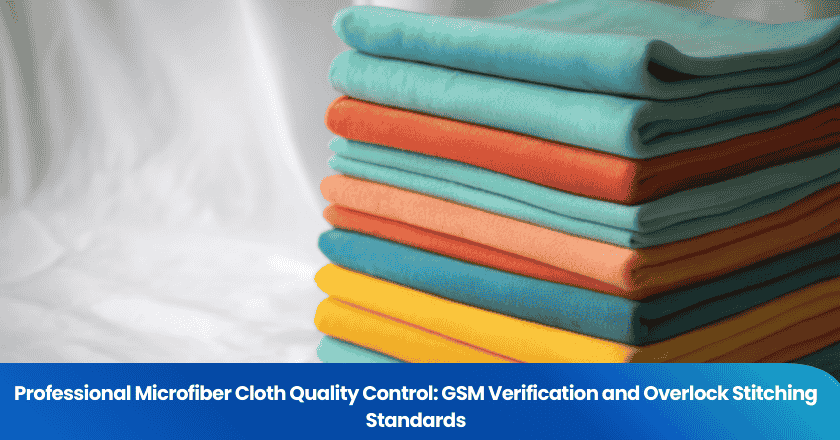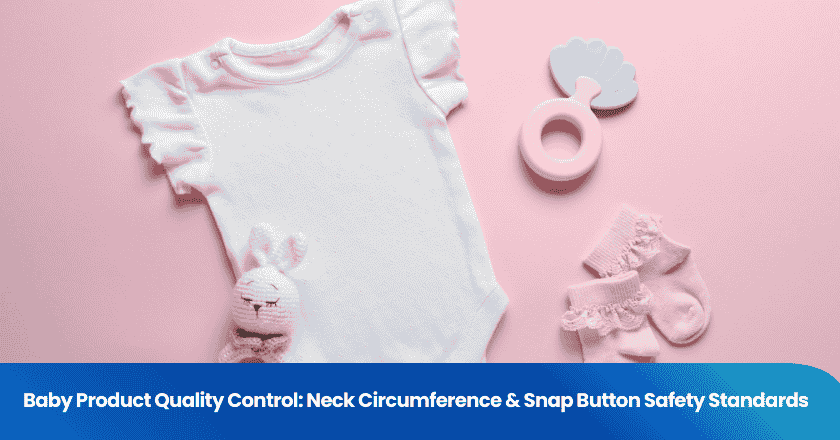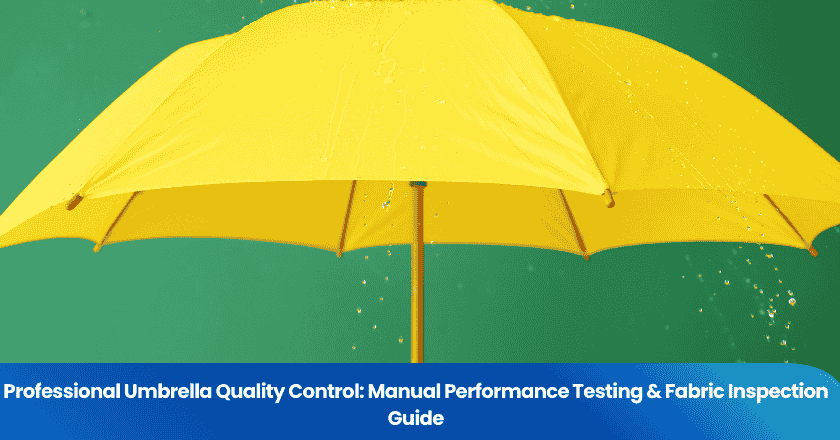
You rely on quality, safety, and compliance in every product or service you use. This is where third-party inspections play a vital role. These independent evaluations, conducted by external experts, ensure that businesses meet strict industry standards. By verifying compliance, they help prevent risks and maintain high-quality outcomes. Their impartiality builds trust between businesses, consumers, and regulators. Without the oversight of 3rd party inspection agencies, achieving confidence in products and services would be much harder. They act as a bridge, fostering accountability and reliability across industries.
What Are Third-Party Inspections?
Definition and Purpose
Third-party inspections involve independent evaluations conducted by external organizations to verify compliance, quality, and safety. These inspections ensure that products, services, or processes meet established standards and regulations. You can think of them as an impartial checkpoint that helps businesses maintain accountability while protecting consumers from potential risks.
The primary purpose of third-party inspections is to provide an unbiased assessment. By doing so, they help businesses identify deficiencies, improve operational efficiency, and reduce the likelihood of non-compliance penalties. For example, organizations like Salem Regional Medical Center have used independent evaluations to address deficiencies and maintain accountability in their operations.
Key Characteristics of 3rd Party Inspection Agencies
Third-party inspection agencies stand out due to their independence and expertise. Here are some of their defining characteristics:
• Impartiality: These agencies operate without bias, ensuring their evaluations remain objective.
• Expertise: They employ professionals with specialized knowledge in various industries, from manufacturing to healthcare.
• Accreditation: Most agencies adhere to international standards, such as ISO 17020, which governs inspection bodies.
• Comprehensive Services: They offer a wide range of inspection services, including product testing, factory audits, and regulatory compliance checks.
For instance, Procter & Gamble improved its compliance and minimized risks by leveraging external inspection services to enhance data management. This demonstrates how third-party agencies can provide tailored solutions to meet specific business needs.
Differences Between First-Party, Second-Party, and Third-Party Inspections
Understanding the distinctions between these types of inspections helps you appreciate the unique role of third-party agencies。
First-party inspections are conducted by the organization itself for internal quality control, such as a manufacturer inspecting its own products. Second-party inspections are carried out by customers or clients to ensure supplier compliance, for example, a retailer auditing a supplier's factory. In contrast, third-party inspections are performed by independent agencies to provide objective evaluations and certifications, such as verifying the safety of products by a third-party inspection agency.
Third-party inspections offer the highest level of impartiality. Unlike first-party or second-party inspections, they eliminate conflicts of interest, making their findings more reliable. For example, Columbia University Irving Medical Center relies on independent evaluations to ensure the integrity of its clinical trials, showcasing the critical role of third-party inspections in sensitive fields.
TradeAider: A Leading Force in Inspection and QA Services
As a highly reputable and trusted inspection and QA service provider, TradeAider is driven by visionary goals and a commitment to excellence. Our core strengths stem from the founder’s dedication and extensive experience in global trade and manufacturing, combined with a vast network of over 80,000 quality control specialists worldwide. This extensive network spans the entire production cycle, ensuring comprehensive coverage and expertise.
What sets TradeAider apart is our innovative approach to quality assurance. We leverage cutting-edge digital tools, such as the TradeAider App, to streamline processes and enhance efficiency. This technology-driven approach ensures successful quality assurance for every service order placed by our clients. We are proud to be part of Amazon's Service Provider Network (SPN), standing alongside industry leaders in quality control.
TradeAider is distinct from traditional inspection firms in several key ways. We offer more than just lower costs; our focus is on delivering superior efficiency and transparency. Our esteemed clients can effortlessly monitor the full inspection process in real-time via the TradeAider Web App, providing unparalleled visibility and control. Additionally, we offer a complimentary Sticker-Attaching Service to ensure that clients receive only products that meet the highest quality standards. To further build trust, we have implemented a reliable "refund commitment," providing our clients with peace of mind from the very start.
Scope of Third-Party Inspections
Industries Served by 3rd Party Inspection Agencies
Third-party inspection agencies play a pivotal role across a wide range of industries. You’ll find their services particularly vital in sectors where safety, quality, and compliance are non-negotiable. The consumer goods and retail sector, for instance, heavily relies on these agencies. Industries such as electronics, clothing, food and beverages, and beauty products depend on inspection services to meet international and regional standards.
The rise of e-commerce has further amplified the demand for third-party inspections. Online retailers need to verify product quality and authenticity to prevent counterfeiting. Additionally, stringent regulations imposed by governments and international bodies drive industries like cosmetics and electronics to adopt robust inspection systems. This ensures that products meet safety and quality benchmarks before reaching consumers.
The inspection segment is also experiencing growth due to increased supply chain activities. As companies expand their operations globally, they face mounting pressure to comply with diverse regulatory requirements. Third-party inspection agencies help businesses navigate these complexities, ensuring compliance while maintaining operational efficiency.
Types of Inspections Conducted
Third-party inspection agencies offer a variety of inspection services tailored to meet the unique needs of different industries. These services typically fall into the following categories:
• Pre-production Inspections: These inspections assess raw materials and components before manufacturing begins. This ensures that production starts on the right foot.
• In-production Inspections: Conducted during the manufacturing process, these inspections identify defects early, reducing waste and ensuring quality.
• Pre-shipment Inspections: Before products leave the factory, agencies verify that they meet the required standards and specifications.
• Factory Audits: These inspections evaluate a facility’s compliance with safety, environmental, and ethical standards.
• Regulatory Compliance Checks: Agencies ensure that products adhere to national and international regulations, safeguarding businesses from legal penalties.
This table highlights the extensive reach of inspection services, showcasing their critical role in ensuring workplace safety and compliance.
Operational Boundaries and Limitations
While third-party inspection agencies provide invaluable services, their scope of the inspection has defined boundaries. These agencies operate within the framework of established standards and regulations. They cannot enforce compliance but can only report findings and provide recommendations.
Additionally, their effectiveness depends on the accuracy of the information provided by businesses. If a company withholds critical data or misrepresents its operations, the inspection results may not reflect the true state of affairs.
Another limitation lies in the geographical reach of some agencies. While many operate globally, others may have limited access to certain regions, which can affect their ability to conduct inspections comprehensively. Despite these challenges, third-party inspection agencies remain a cornerstone of quality assurance and regulatory compliance across industries.
Benefits of Third-Party Inspections
Ensuring Compliance with Standards and Regulations
Third-party inspection agencies help you meet industry standards and regulations effectively. Their impartial evaluations ensure your operations align with local and international requirements. By automating asset management processes, inspections improve operational efficiency and decision-making. Accurate data allows you to make informed strategic choices, enhancing your business reputation.
Regular audits also identify risks early, preventing costly fines or lawsuits. For example:
• Environmental, Health, and Safety (EH&S) inspections foster a safer workplace, reducing incidents and boosting productivity.
• Risk-Based Inspections (RBI) streamline compliance audits and minimize unplanned shutdowns, improving production efficiency.
These benefits demonstrate how inspection services contribute to long-term financial stability and operational success.
Improving Product and Service Quality
Third-party inspections elevate the quality of workmanship in your products and services. Their structured approach ensures consistency in inspection procedures, leading to better outcomes. Enhanced efficiency allows inspectors to identify areas for improvement proactively. This data-driven approach helps you refine processes and target professional development for your team.
For instance, inspection services use analytics to pinpoint weaknesses in manufacturing or service delivery. By addressing these gaps, you achieve higher standards and maintain customer satisfaction. Improved inspection outcomes also ensure your products meet safety and quality benchmarks, reinforcing your commitment to excellence.
Building Trust and Reducing Risks for Businesses
Trust is the cornerstone of any successful business. Third-party inspections strengthen your credibility by providing impartial evaluations. These assessments verify compliance with safety standards, reducing risks and ensuring operational reliability. Regular inspections identify potential issues early, allowing you to take corrective actions before problems escalate.
Passing unbiased inspections builds confidence among clients and stakeholders.
Inspection certificates also serve as proof of your dedication to quality, helping you attract new partners and customers. By combating counterfeit products and verifying traceability, third-party inspections protect your brand reputation and maintain consumer trust.
How 3rd Party Inspection Agencies Operate
Overview of the Inspection Process
Third-party inspection agencies follow a structured process to ensure thorough evaluations. The process typically begins with an initial consultation where you provide details about your product, service, or facility. Inspectors then develop a customized plan based on your specific needs and industry standards.
During the inspection, professionals use advanced tools and techniques to assess compliance, quality, and safety. For example, they may conduct visual inspections, material testing, or performance evaluations. After completing the assessment, they compile their findings into a detailed report. This report highlights areas of non-compliance and offers recommendations for improvement.
By following this systematic approach, third-party agencies ensure accurate verification of your operations. Their impartial evaluations help you maintain high standards and build trust with stakeholders.
Certifications and Accreditations
Certifications and accreditations play a crucial role in the operations of third-party inspection agencies. These credentials validate their expertise and ensure their services meet international benchmarks. Recent trends show a growing emphasis on certification services due to regulatory demands for product standardization.
Here are some key trends in certifications:
1. Certification services are expanding as businesses aim to meet global standards.
2. Companies gain credibility through certifications, helping them access new markets.
3. Rising concerns about cybersecurity and sustainability drive demand for recognized programs.
These certifications not only enhance your credibility but also ensure compliance with evolving industry standards.
Standards and Frameworks Followed
Third-party inspection agencies adhere to established standards and frameworks to deliver consistent results. These include international guidelines like ISO 17020, which governs inspection bodies. By following these frameworks, agencies ensure their methods align with global best practices.
Technological advancements also influence the standards they follow. For instance, the integration of AI and IoT technologies has improved the accuracy of inspections. These innovations enable smarter solutions, such as real-time monitoring and predictive analytics.
Additionally, the focus on sustainability has led agencies to adopt environmentally friendly practices. By aligning with these frameworks, you can achieve your quality assurance inspection goals while meeting environmental objectives.
Tip: Partnering with accredited agencies ensures your operations meet both regulatory and ethical standards, safeguarding your reputation in the market.
3rd party inspection agencies play a vital role in ensuring quality, safety, and compliance across industries. Their impartial evaluations foster trust and accountability, helping businesses meet regulatory standards and improve operational efficiency. You can achieve sustainable growth by leveraging their expertise. For example:
• Financial entities require third-party providers to meet strict information security standards.
• Risk-based audits help identify critical areas for improvement.
• Skilled auditors ensure accurate assessments, even in complex scenarios.
By partnering with these agencies, you reduce risks, enhance credibility, and build a foundation for long-term success.
FAQ
What is the difference between third-party inspections and certifications?
Third-party inspections evaluate compliance, quality, and safety. Certifications validate that your product or service meets specific standards. Inspections focus on identifying issues, while certifications confirm adherence to established benchmarks.
How do third-party inspections benefit small businesses?
They help you improve product quality, meet regulations, and build trust with customers. Inspections also reduce risks by identifying problems early, saving you from costly penalties or recalls.
Are third-party inspection agencies globally recognized?
Most agencies follow international standards like ISO 17020. Their certifications and evaluations are widely accepted, enabling you to meet global compliance requirements and expand into new markets.
Can third-party inspections prevent counterfeit products?
Yes, they verify product authenticity and traceability. By conducting thorough evaluations, agencies help you protect your brand reputation and ensure customers receive genuine products.
What industries rely on third-party inspections the most?
Industries like manufacturing, healthcare, consumer goods, and electronics depend heavily on inspections. These sectors prioritize safety, quality, and compliance to meet regulatory demands and customer expectations.
Grow your business with TradeAider Service
Click the button below to directly enter the TradeAider Service System. The simple steps from booking and payment to receiving reports are easy to operate.





